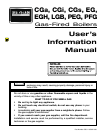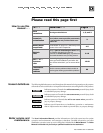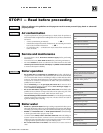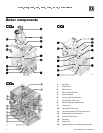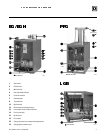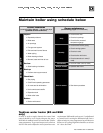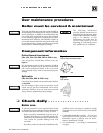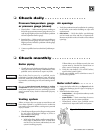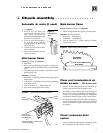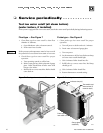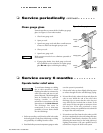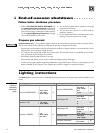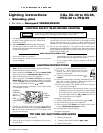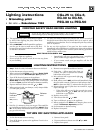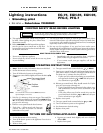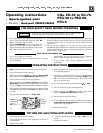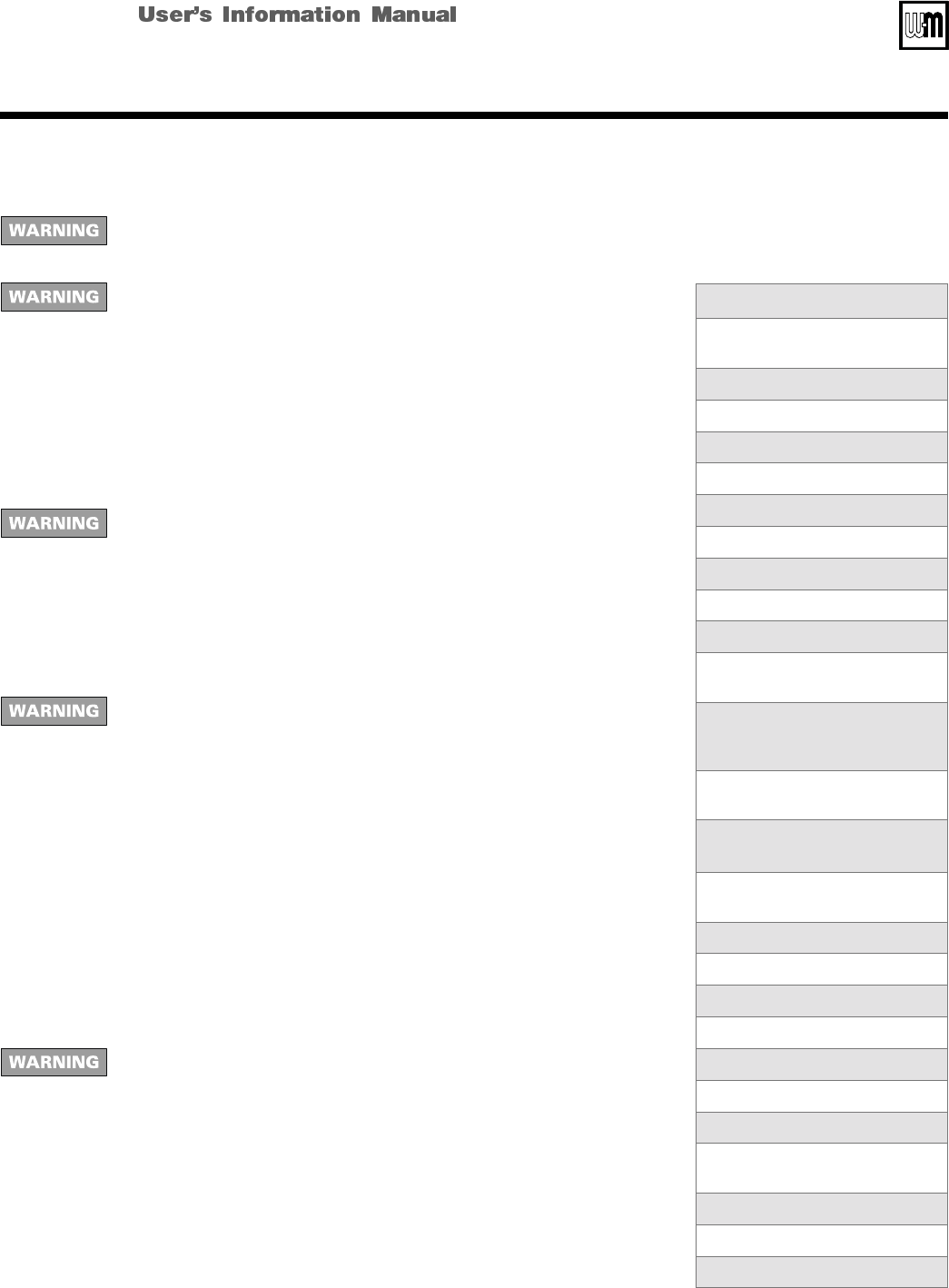
3Part Number 550-110-592/1000
Failure to adhere to the guidelines on this page can result in severe personal injury, death or substantial
property damage.
STOP!! — Read before proceeding
Products to avoid
Spray cans containing chloro/fluorocar-
bons
Permanent wave solutions
Chlorinated waxes/cleaners
Chlorine-based swimming pool chemicals
Calcium chloride used for thawing
Sodium chloride used for water softening
Refrigerant leaks
Paint or varnish removers
Hydrochloric acid/muriatic acid
Cements and glues
Antistatic fabric softeners used in clothes
dryers
Chlorine-type bleaches, detergents, and
cleaning solvents found in household
laundry rooms
Adhesives used to fasten building products
and other similar products
Areas likely to have
contaminants
Dry cleaning/laundry areas and establish-
ments
Swimming pools
Metal fabrication plants
Beauty shops
Refrigeration repair shops
Photo processing plants
Auto body shops
Plastic manufacturing plants
Furniture refinishing areas and establish-
ments
New building construction
Remodeling areas
Garages with workshops
Boiler water
• DO NOT use petroleum-based cleaning or sealing compounds in boiler system.
Water seal deterioration will occur, causing leakage between sections and damage
to heating system components. This can result in substantial property damage.
•
DO NOT use "homemade cures" or "boiler patent medicines". Serious damage
to boiler, personnel and/or property may result.
• Continual fresh
makeup water will reduce boiler life. Mineral buildup in
sections reduces heat transfer, overheats cast iron, and causes section failure.
Addition of oxygen and other gases can cause internal corrosion. Leaks in boiler
or piping must be repaired at once to prevent makeup water.
•
Do not add cold water to hot boiler. Thermal shock can cause sections to
crack.
Boiler operation
• Do not block flow of combustion or ventilation air to boiler. This boiler is
equipped with a control which will automatically shut down the boiler should
air or vent be blocked. If vent or air blockage is easily accessible and removable,
remove it. The boiler should attempt to restart within an hour. If blockage is
not obvious or cannot be removed, have the boiler and system checked by a
qualified service technician.
• Should
overheating occur or gas supply fail to shut off, do not turn off or
disconnect electrical supply to pump. Instead,
shut off the gas supply at a
location
external to the appliance.
• Do not use this boiler if any part has been under water. Immediately call a
qualified service technician to inspect the boiler and to replace any part of the
control system and any gas control, which has been under water.
•
Have the building monitored when it is vacant for an extended period. Safety
controls can shut down the boiler at any time. The loss of heat can result in
significant damage due to freezing.
Service and maintenance
• To avoid electric shock, disconnect electrical supply before performing
maintenance.
• To avoid severe burns,
allow boiler to cool before performing maintenance.
• You must
maintain the boiler as outlined in the manual and have the boiler
started up and serviced at least annually by a qualified service technician
to ensure boiler/system reliability.
Air contamination
• To prevent potential of severe personal injury or death, check for products or
areas listed in table at right before installing boiler. If any of these contaminants
are found:
• remove contaminants permanently. — OR —
• isolate boiler and provide outside combustion air. See national, provincial or
local codes for further information. — OR —
• for CGs boilers only — combustion air may be ducted from outside to the
boiler air intake.



